Bacchanal
Oil on canvas, 37 x 40 cm - with frame 54 x 56.5 cm
The canvas under examination highlights strong stylistic and formal recalls with the work of Giulio Carpioni . The painter was born in Venice in 1613 and was trained in the studio of Padovanino (Padua, 1588 - Venice, 1649), which also followed a move in 1631 to Bergamo, coming into contact with this taste for reality, typical of the Lombard-Venetians of the time. Carpioni's style is strongly characterized, an interpreter of the great Venetian tradition in the classical sense, with influences linked to the Bolognese like Albani (Bologna, 1578 - 1660) and Domenichino (Bologna, 1581 - Naples, 1641) or the experience of Poussin (The Andelys, 1594 - Rome, 1665). This influence led Longhi himself to consider an undocumented trip to Rome by the still-young Carpioni. From 1638 he is witnessed in Vicenza, where he will reside permanently until 1660. The Carpioni's painting is cultured, researched and intellectual, linked to classical literature and mythology, aiming at subjects of timeless charm. The palette, as in the work under examination, is characterized by a delicate and elegant tonal choice, where the combinations between pinks, blues, greens, soft in gradation but effective and present overall, give the canvas an atmosphere with an idyllic taste, suspended in the motionless time of the classical world, like the subject represented. The slight floating of the soft draperies, the vibrant bursts of light, the stylistic definition of the faces, not exempt from reminders of Padovanino, are elements that recur in his work. We can cite in this regard a similar painting of the subject, in a private collection in Venice, in particular for the rendering of the stroke of light on the helmet or the definition of the face of the goddess Minerva. The definition of the satyr or the putto is a recurring element in the work of the Venetian painter, represented for example in a canvas Amorini e cacciagione, in Florence in a private collection or in a "Baccanale" kept at Ca' Rezzonico in Venice.


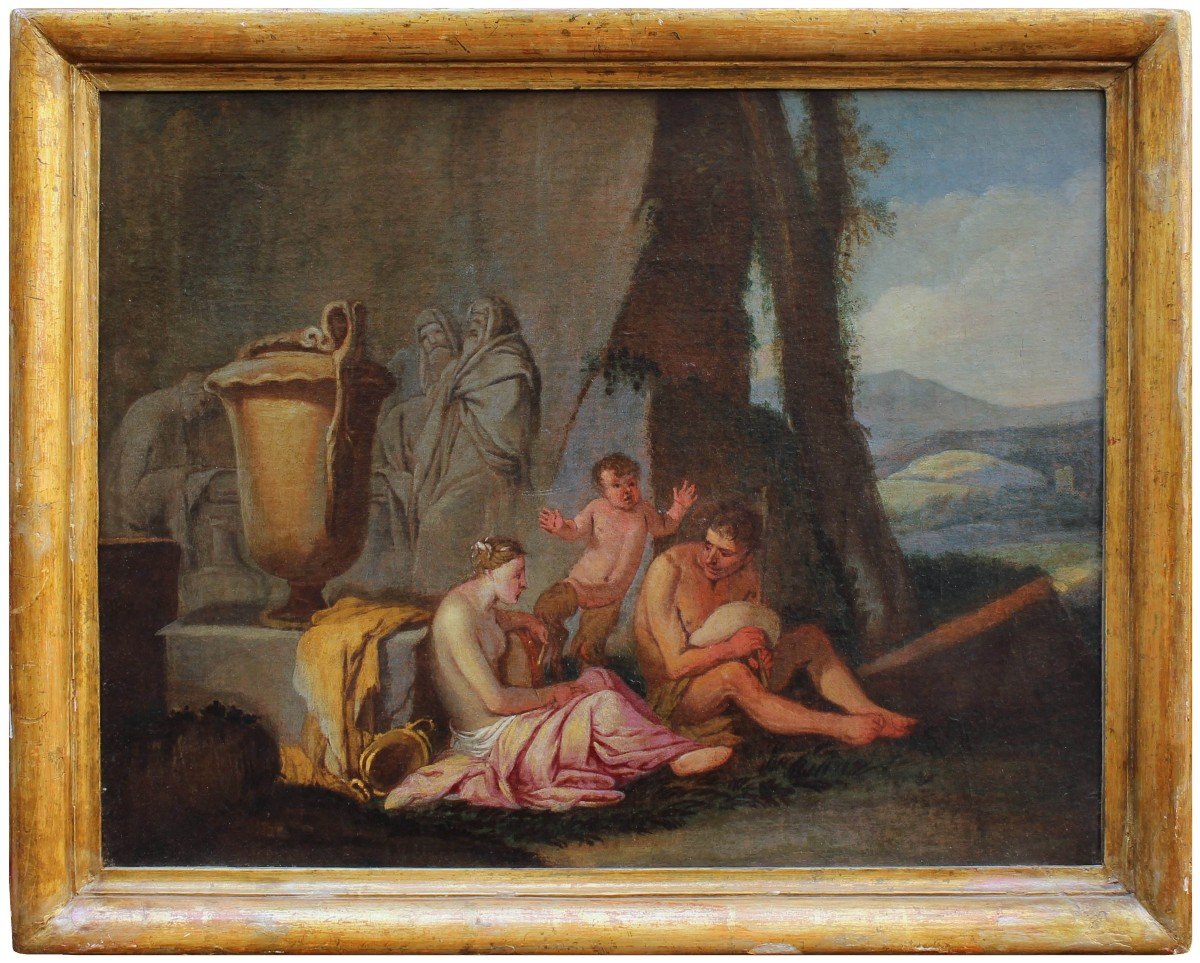


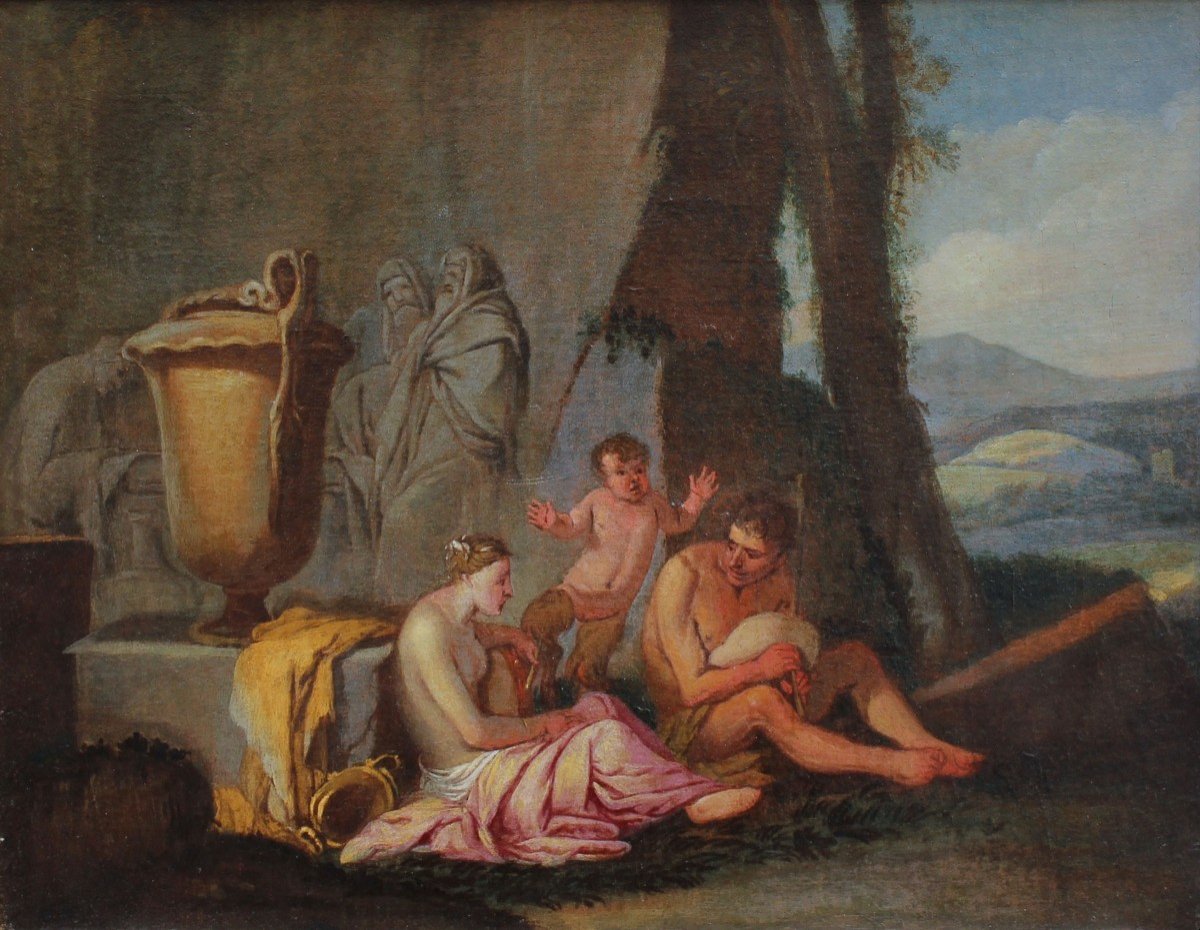
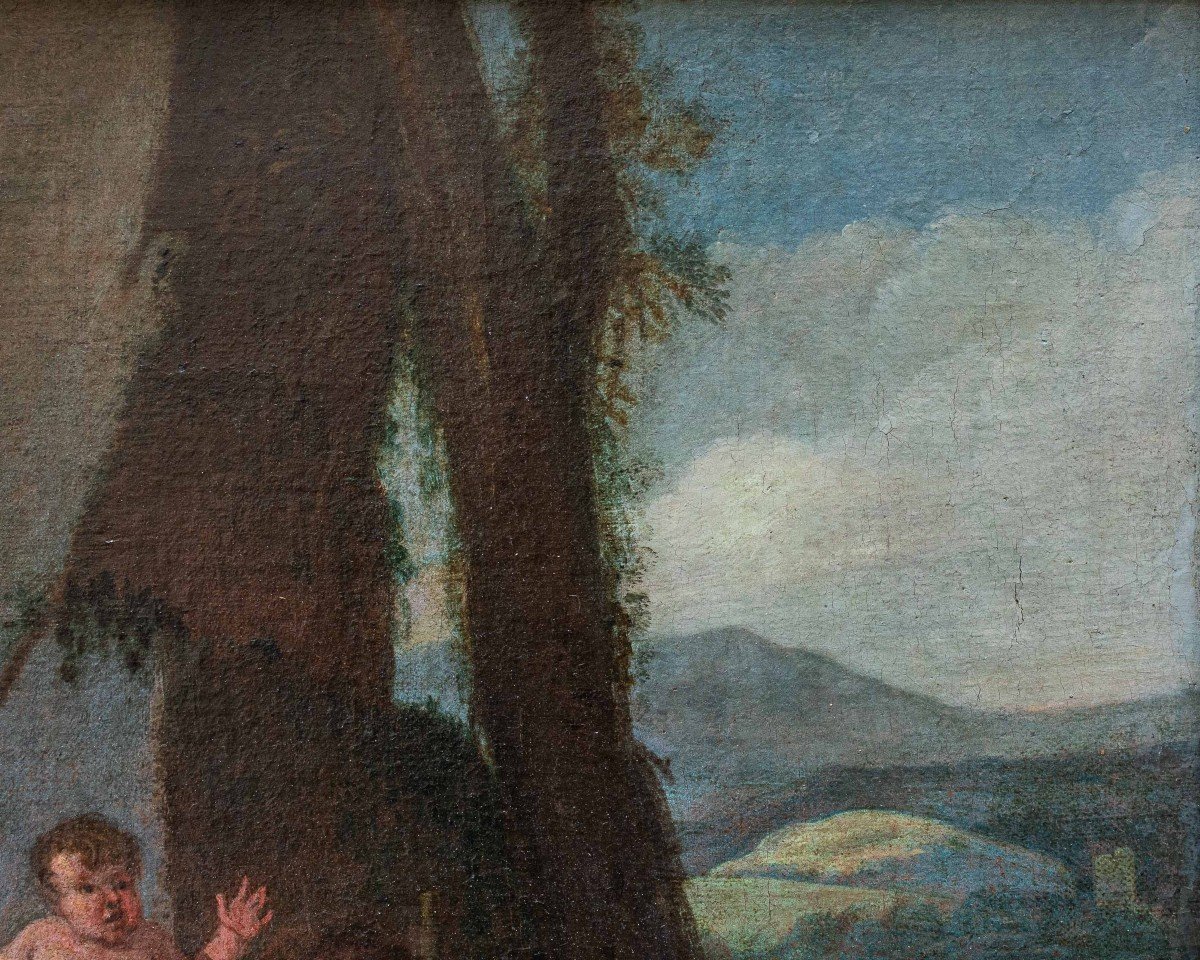
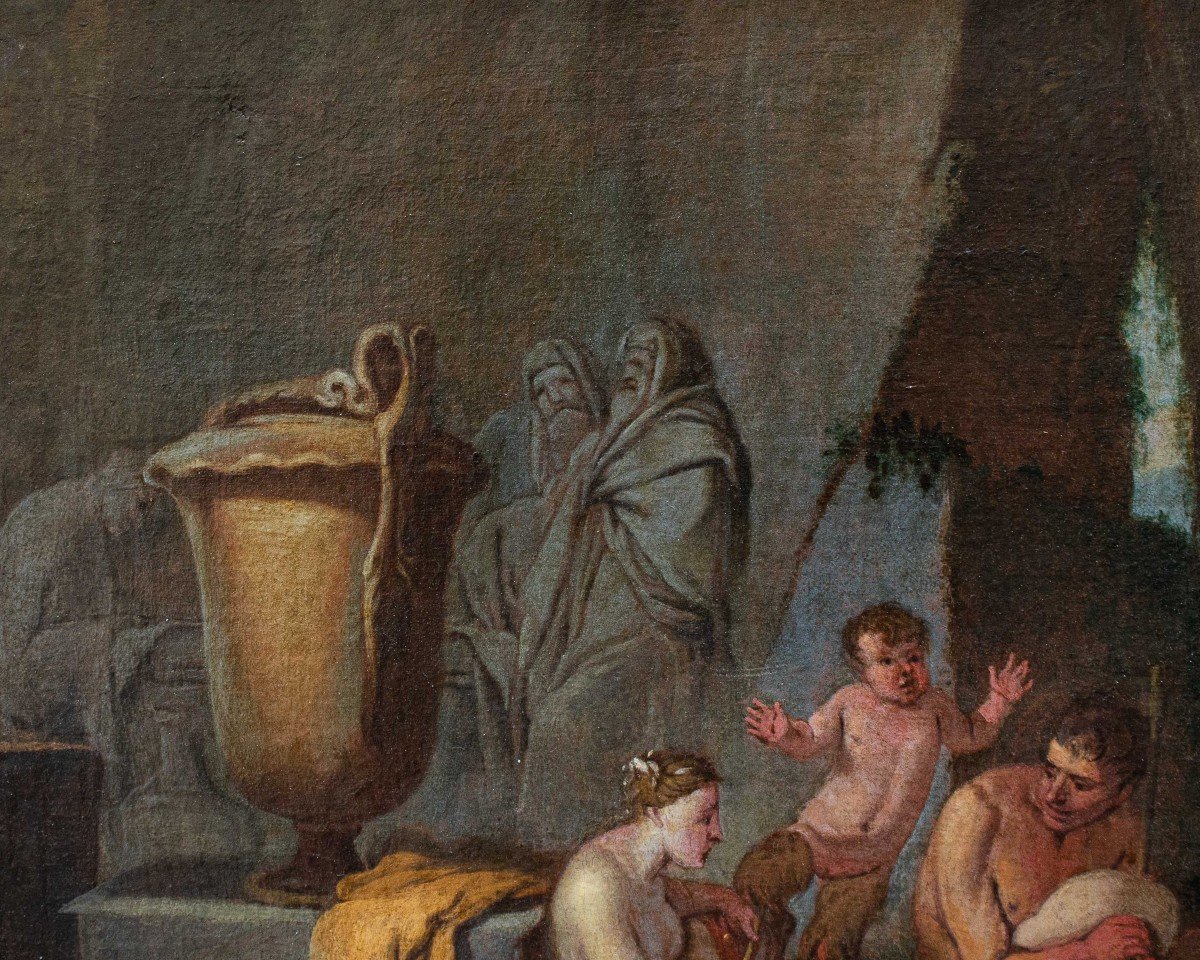
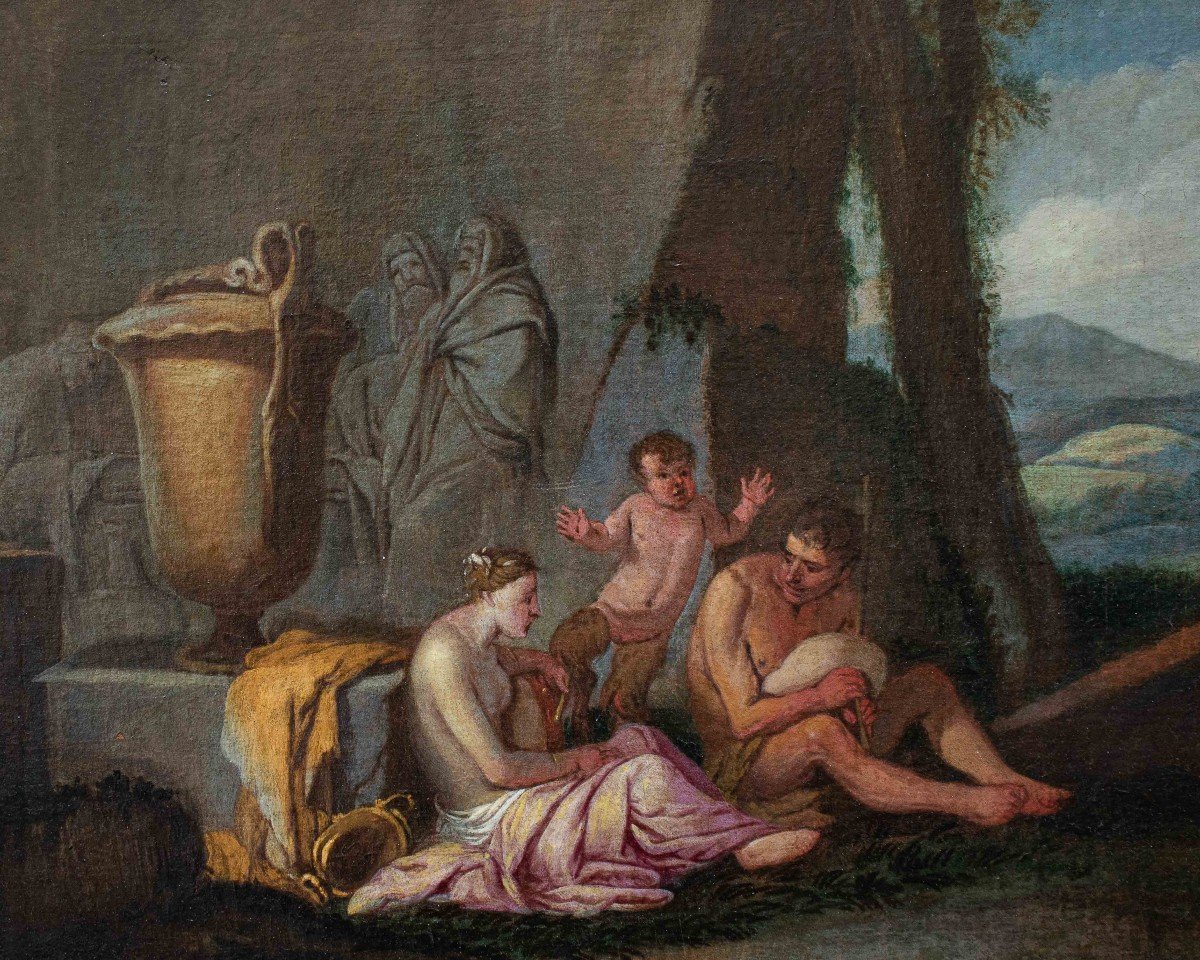

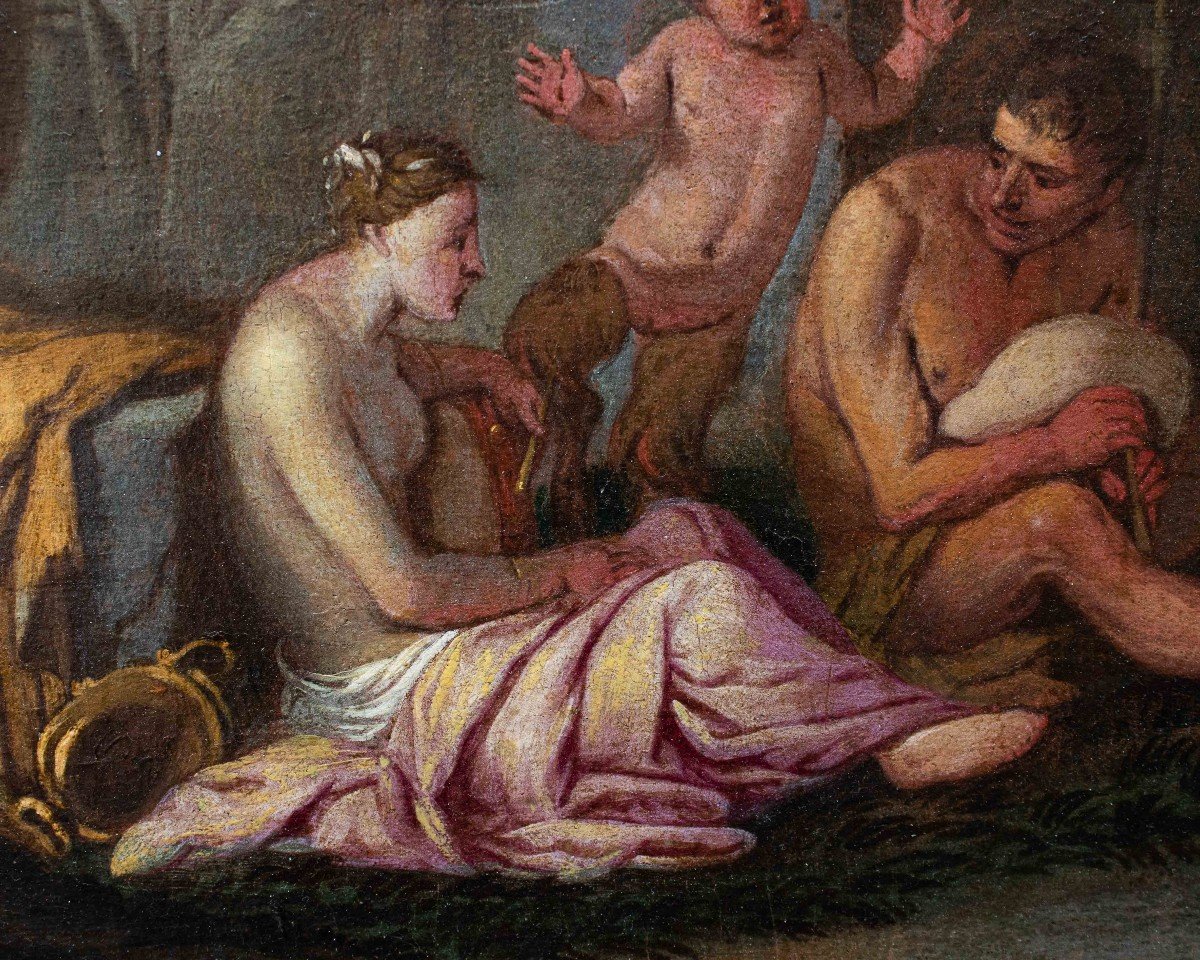

















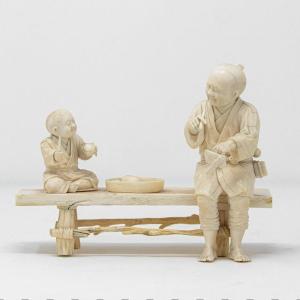








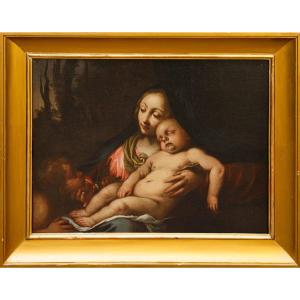








 Le Magazine de PROANTIC
Le Magazine de PROANTIC TRÉSORS Magazine
TRÉSORS Magazine Rivista Artiquariato
Rivista Artiquariato